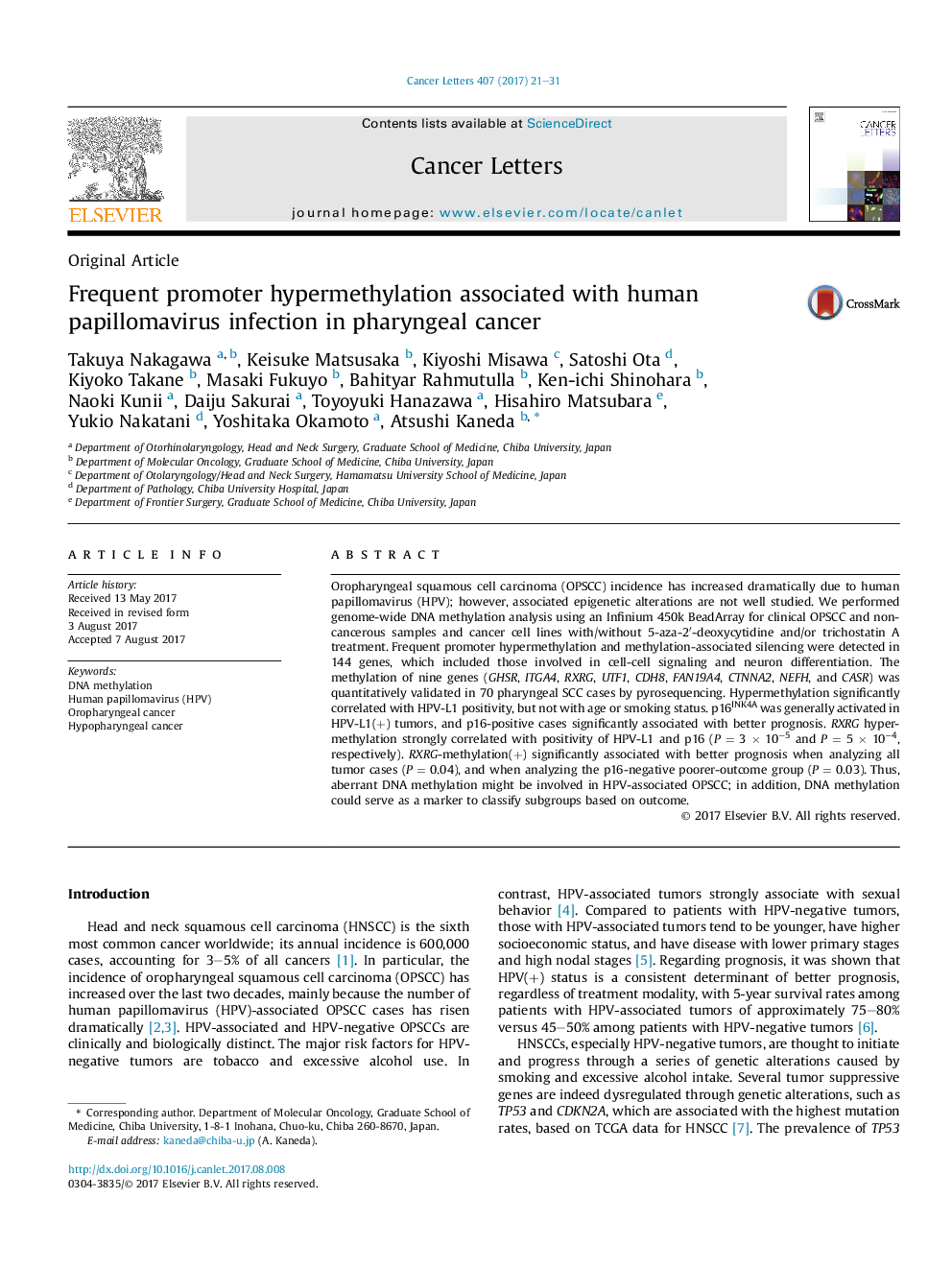| Article ID | Journal | Published Year | Pages | File Type |
|---|---|---|---|---|
| 5525277 | Cancer Letters | 2017 | 11 Pages |
â¢Genome-wide analysis revealed genes frequently methylated and silenced in OPSCC.â¢Aberrant DNA methylation might associate with HPV infection and OPSCC subgroup.â¢Methylation might represent a marker to classify OPSCC subgroups based on outcome.â¢RXRG methylation suggested to be used with p16 expression to predict OPSCC outcome.
Oropharyngeal squamous cell carcinoma (OPSCC) incidence has increased dramatically due to human papillomavirus (HPV); however, associated epigenetic alterations are not well studied. We performed genome-wide DNA methylation analysis using an Infinium 450k BeadArray for clinical OPSCC and non-cancerous samples and cancer cell lines with/without 5-aza-2â²-deoxycytidine and/or trichostatin A treatment. Frequent promoter hypermethylation and methylation-associated silencing were detected in 144 genes, which included those involved in cell-cell signaling and neuron differentiation. The methylation of nine genes (GHSR, ITGA4, RXRG, UTF1, CDH8, FAN19A4, CTNNA2, NEFH, and CASR) was quantitatively validated in 70 pharyngeal SCC cases by pyrosequencing. Hypermethylation significantly correlated with HPV-L1 positivity, but not with age or smoking status. p16INK4A was generally activated in HPV-L1(+) tumors, and p16-positive cases significantly associated with better prognosis. RXRG hypermethylation strongly correlated with positivity of HPV-L1 and p16 (PÂ =Â 3Â ÃÂ 10â5 and PÂ =Â 5Â ÃÂ 10â4, respectively). RXRG-methylation(+) significantly associated with better prognosis when analyzing all tumor cases (PÂ =Â 0.04), and when analyzing the p16-negative poorer-outcome group (PÂ =Â 0.03). Thus, aberrant DNA methylation might be involved in HPV-associated OPSCC; in addition, DNA methylation could serve as a marker to classify subgroups based on outcome.
